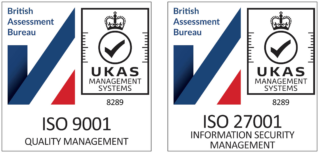How we protect our recruitment business from illegal workers

With the number of fake passports seized at UK borders reaching a five-year high and high-profile stories of ‘illegal workers’ hitting the press, many companies may be concerned about their own screening and on-boarding process.
In this ‘guest blog’, Abbie Pullman, Head of Talent Management at Off to Work, the UK’s leading event staffing solutions, consultancy, recruitment and training academy, shares her ‘Top 10 Tips’ for protecting a business from the risks of illegal workers…
“At Off to Work, we don’t profess to be immigration experts. But we are diligent employers and we do understand the risks that our business could face if we employ illegal workers. The negative PR that can ensue if you get things wrong can be disastrous, not to mention the financial risk to your business! So here’s my top ten tips to prevent illegal working”:

1. Take preventative action before candidates arrive at your door
If you let potential candidates know that you check passports and identity documents thoroughly, this alone can act as a powerful deterrent for those who may try to get work using fraudulent or counterfeit documents.
2. Know what is accepted as Right to Work documentation in the UK
It is always your applicants’ responsibility to prove they have permission to work in the UK. But it could be your business facing prosecution if you employ someone when there is ‘reasonable cause to believe’ that they are working illegally. So if someone is vague about a visa/right to work document or ‘isn’t too sure where it is’, then alarm bells should be ringing. Full information on what is acceptable can be found here, but check regularly against the government’s list of acceptable documents – if the document you’re being shown is not included, it is unlikely that it will be accepted, but…
3. Ask for advice if you’re not sure
With so many different types of passports and visas in circulation and rules constantly changing, things can get confusing. It may not always be obvious whether a visa provides permission to work and several have strict restrictions attached (such as student visas). We have found the Home Office Sponsorship, Employer and Education helpline genuinely helpful: Tel: 0300 123 4699 / BusinessHelpdesk@homeoffice.gsi.gov.uk
4. Use the online tools available
This handy link can help you decide whether the combination of documents provided gives Right to Work, according to lists A and B. Make sure you take copies of all documents (including a record of who made the check and the date it was copied) before an applicant starts work. You need to keep copies during their whole employment and for two years after they stop working for you.
5. Check and check again
You can compare documents and their security features to an online library – we like Edison TD and PRADO. Trust your instincts – if something seems or feels wrong, it may well be. Double-check the document and consult with a colleague or with the Home Office.
6. Turn your HR and Recruitment teams into detectives
Get your teams interested in hidden passport and visa features (bringing out their inner sleuth!). By educating our team here on the huge range of visual security features which are built into ID documents, including UV and latent images, watermarks, Optically Variable Ink and more, they take a genuine interest and are able to spot counterfeit and fraudulent documents more easily and confidently.
7. Use technology for peace of mind
The Home Office now recommends intelligent identity document identity document scanners as recruitment best practice. Working in partnership with TrustID means we can easily authenticate security features that we can’t check manually. With simple pass or fail results, there’s no grey areas, and even new users find it easy to use. We have complete central visibility of document scans from every office and control over ‘unusual cases’. If we do see any failed documents or something that causes concern, we refer them in one click to our advanced users for decision, with easy referral onward to TrustID for expert advice.
8. Have a back-up
Sometimes the internet fails; there’s a power cut; you spill coffee on your laptop… so I’d recommend buying an inexpensive UV torch. This, combined with a good visual checklist, gives us additional security if we do ever need to manually check passports.
9. Know when you need to check documents again
Keep a record of when visas, passports or permissions to work expire, and ensure you re-check documents before this date. We make our software do all the hard work by automatically blocking staff from shift bookings once their permission to work expires, but you can also use standard calendar entries and reminders to ensure permission to work is always valid.
10. Work closely and check in regularly with your staff and recruitment partners
If you use a trusted third party to supply staff or candidates, remember that the penalties for illegal employment could still fall on you. So carry out due diligence and don’t be afraid to ask to audit their recruitment practices to ensure that they are working to required standards. We are audited by different clients at least 10 times a year and enjoy them taking an active interest in the work we put into ensuring robust recruitment processes.
By following the steps above, here at Off to Work we’re now confident that our vetting and on-boarding processes are robust and protect our business. We’ve caught 5 counterfeit documents since April which could have resulted in huge potential fines. But we have also vetted over 3500 genuine right to work documents in that time and the steps above mean that the stress has been removed from our Right to Work checks.
Abbie Pullman, Guest blogger
Spent 4 years overseeing teams recruiting 5500+ hospitality agency staff, experiencing many recruitment challenges including a wide range of tricky immigration situations.
Want to find out more?
If you’d like to discuss how our services could support you, please get in touch. We’d be happy to arrange an online demo.
Sign up to receive updates
Receive notifications from TrustID direct to your inbox. Simply fill out your email address in the form below.
Want to find out more?
We’d be really happy to chat through your requirements and offer advice on the best service for your business.
Tel: 0118 466 0822 or email us.
Request a callback

